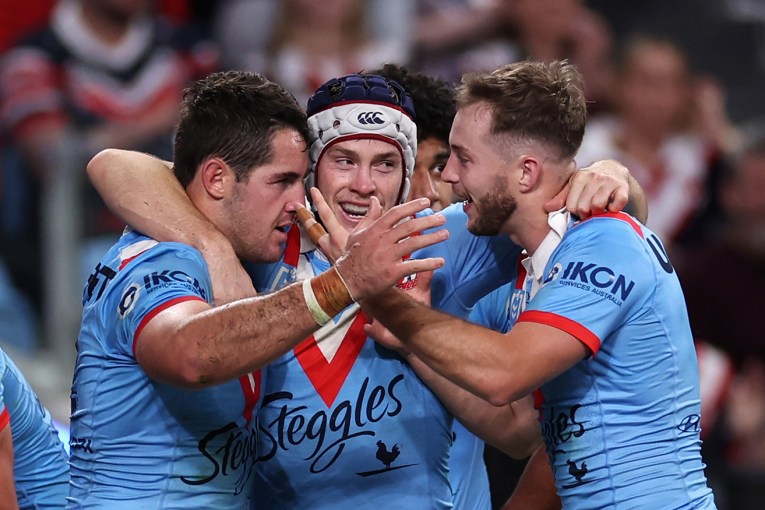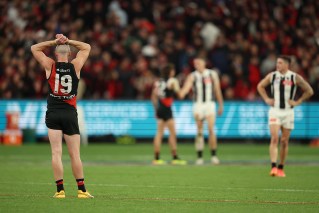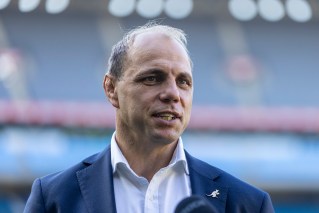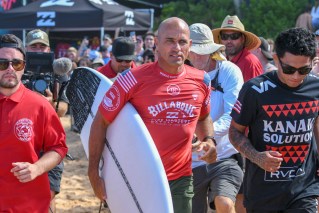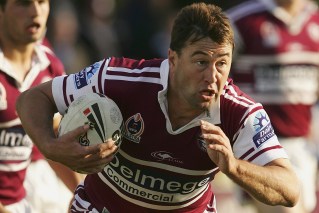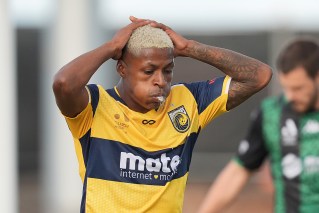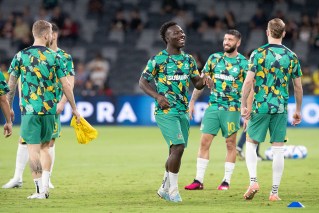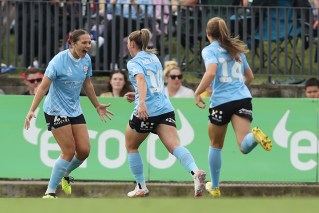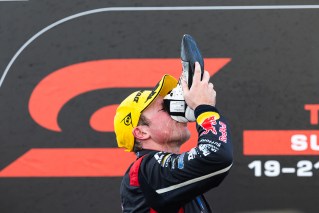Sport faces choice of retreating into a bubble or pushing boundaries – and all without fanfare

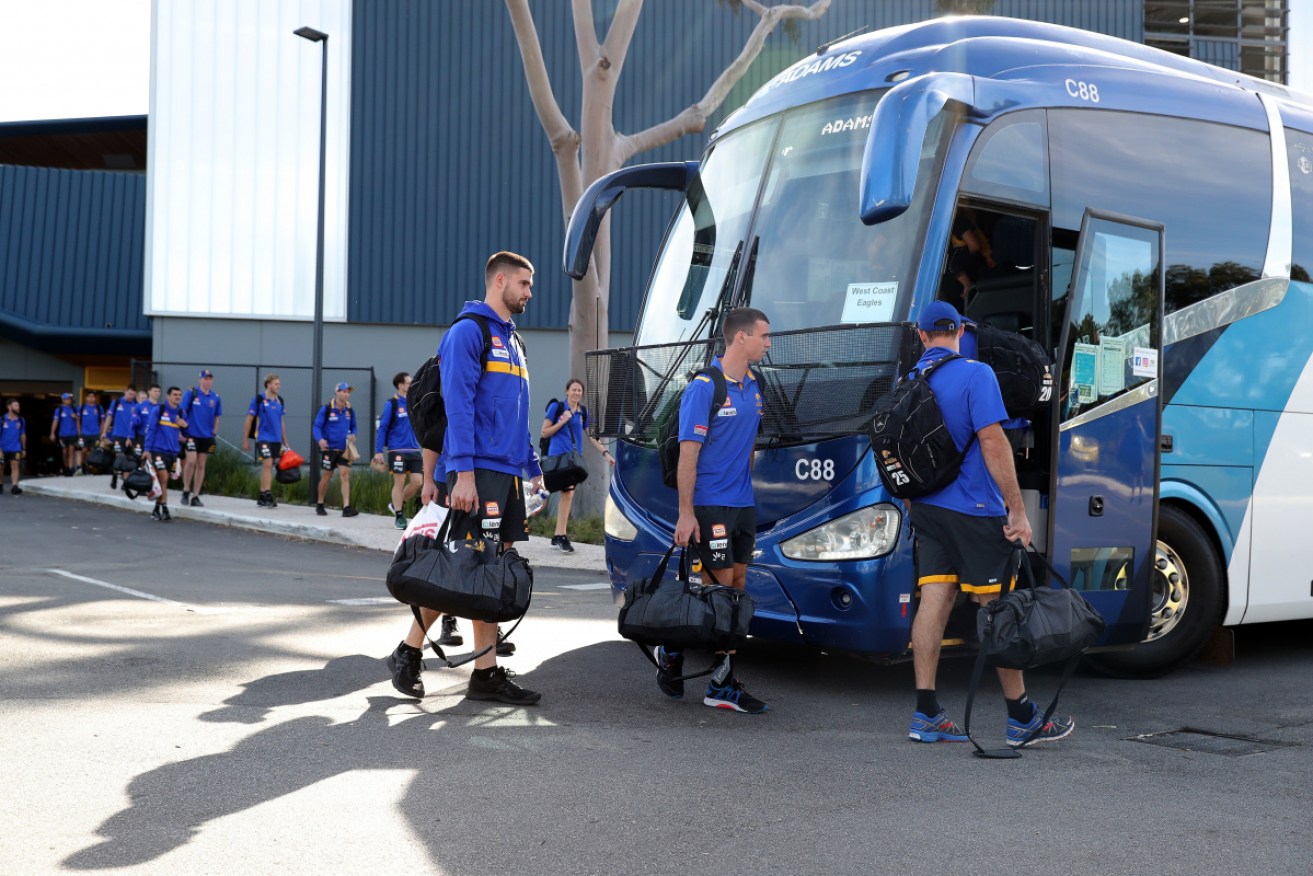
West Coast Eagles players practise social distancing as they board a bus on their way to their Queensland hub. Photo: AAP
The world is reopening after the coronavirus pandemic and financially-strapped sporting competitions will be at the forefront of pushing the boundaries of what is possible over the next few months.
With strict contact and hygiene protocols still in place at sporting clubs, the bubble environment could well give health officials a clearer picture of the extent and spread of the virus.
It’s already becoming clear that sport’s increased testing is identifying more cases than perhaps first thought.
There have been new cases this week in English football, US boxing and in Japan, where Socceroos back-up goalkeeper Mitch Langerak tested positive at his J-League club Nagoya Grampus.

Positive test: Back-up Socceroos goalkeeper Mitch Langerak. Photo: AAP
And while elite competitions are racing against time and their budgets to get back on the field, locked-down sporting clubs appear to be running counter to the general opening up that many other sections of society are experiencing.
NRL was first to fire up, playing behind closed doors since May 28, while the AFL starts its season this Thursday with a Richmond v Collingwood not-quite-blockbuster at the MCG on Thursday night.
That game would normally attract a crowd of 80,000, but such numbers will be unlikely throughout this season – although the AFL has not given up hope of some spectators in July and normal crowd attendances at this year’s grand final.
The AFL has taken a methodical and cautious approach to restarting its season, studiously following the return-to-play guidelines laid down by the government and Australian Institute of Sport.
Each club has a compliance officer and players and staff are regularly tested.
Adelaide, Fremantle, Port Adelaide and West Coast are playing out of a Queensland hub to overcome travel bans still in force in their states.
AFL-listed players are banned from participation in a second-tier competitions this season, with approval given last week for match simulation training for non-selected players against other clubs in their respective state.

Crowds in July? The empty MCG during the first round of AFL matches. Photo: AAP
“This arrangement ensures we continue to support the health, wellbeing and motivation of non-selected players and allows clubs with the ability to provide non-selected players with match practice to ensure they are game-ready if required,” AFL football operations manager Steve Hocking said last week.
“It also provides clubs with flexibility to determine individual requirements while maintaining the health protocols in place for our game.”
There’s not as much clarity over crowds at games, although the NRL has convinced the NSW government to allow up to 50 people in corporate boxes from this week.
The ruling is along the same lines as rules for pubs and clubs.
At this stage the main football codes have yet to detail how they would respond to any positive test for coronavirus – a possibility that now seems more likely given the slew of cases detected after testing in overseas sporting competitions.
Socceroo Langerak did not report any symptoms before his positive test, but became the second player at the Japanese club to become infected.
On Saturday, Grampus announced players would be sent home and club facilities disinfected.
The J-League top flight was set to resume behind closed doors on July 4.
US female boxer Mikaela Mayer has also tested positive and been forced to pull out of is super-featherweight undercard bout against Helen Joseph in Las Vegas on Tuesday.
Mayer wrote on her Instagram account: “It came as a complete surprise. I am currently asymptomatic and am quarantining at an off-site location per recommended guidelines.”
Two players from English Championship clubs have also tested positive and will go into self-isolation, although that was an improvement on last week’s nine positive tests from six clubs.
Perhaps with all the positive tests in mind formula one is taking a pragmatic approach to its restart at the Austrian Grand Prix on July 5, having been forced to abandon its season opener at Melbourne back in early March.

Fans wait outside of the gates before the cancelled Australian Grand Prix. Photo: AAP
At that stage it was a positive test from a McLaren team member that brought the event – and season – crashing down, but now F1 boss Chase Carey said a positive test would not mean a race would be cancelled.
“We will have a procedure in place that finding an infection will not lead to a cancellation,” Carey told the F1 website.
“If a driver has an infection, [teams have] reserve drivers available.”
“The array of ‘what ifs’ are too wide to play out every one of them, but a team not being able to race wouldn’t cancel the race.
“There is a rigorous set of guidelines – probably at this point it’s 80-90 pages,” Carey said.
“Clearly we recognise our sport is one which, at times, we can’t have two metres between every individual on a team. We need to make sure we have procedures to manage all those risks as soon as possible.”
Sport’s status as a canary in the coal mine for the spread of the virus will likely get its biggest test in New Zealand, where the popular Super Rugby competition will begin its opening round in front of crowds next weekend.
The NZ government approved mass gatherings from Monday and it’s likely to be sold-out matches when the Highlanders host the Chiefs in Dunedin on Saturday, and the Blues face the Hurricanes at Eden Park on Sunday.
Australian sporting officials will be watching closely and hoping they can join the race back to financial security soon.
-with AAP
